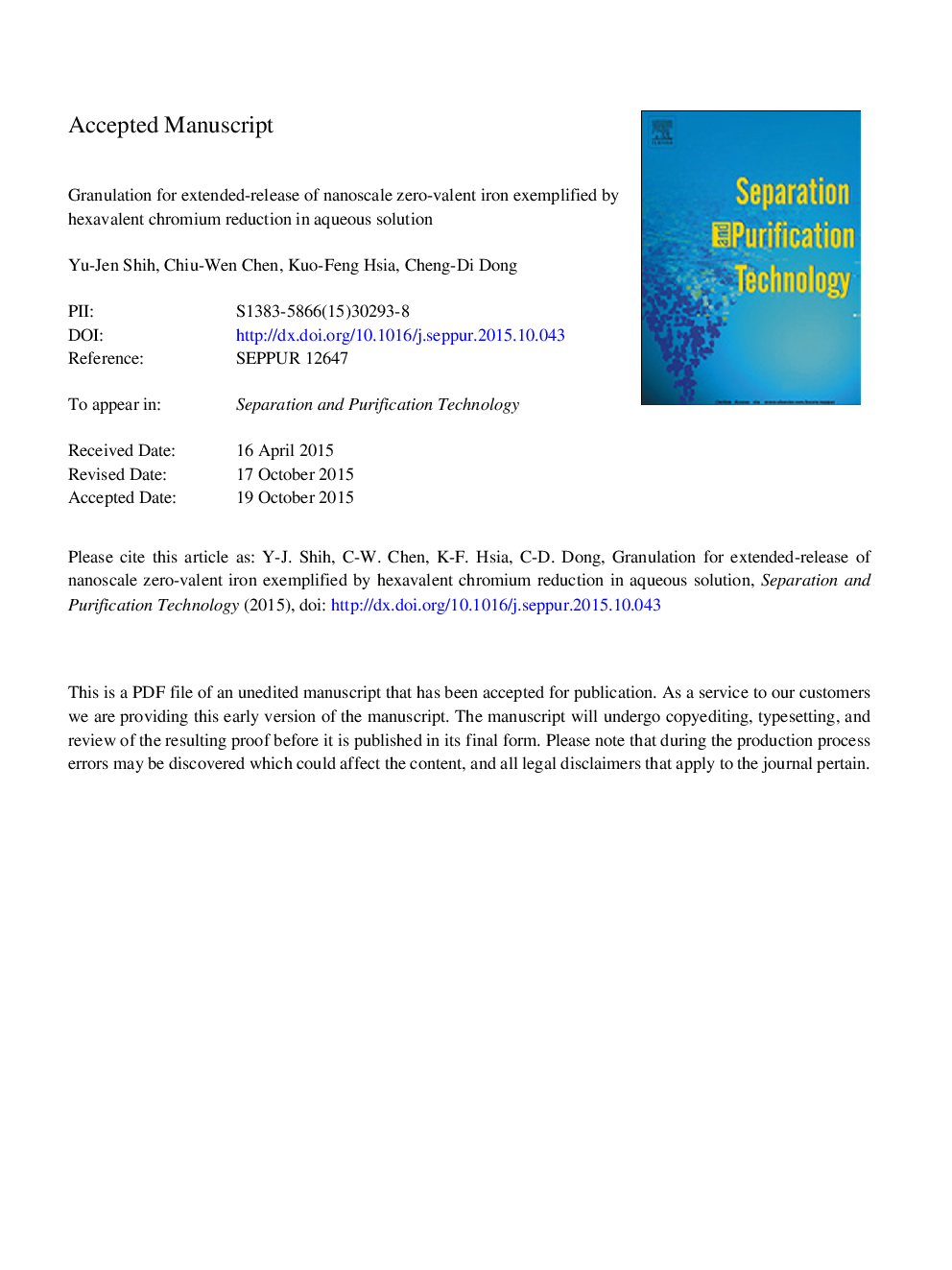| Article ID | Journal | Published Year | Pages | File Type |
|---|---|---|---|---|
| 640186 | Separation and Purification Technology | 2015 | 35 Pages |
Abstract
Granulated nanoparticles of zero-valent iron (GnZVI) was prepared for enhancing the efficacy of Fe0 on remediation of Cr(VI)-containing wastewater under various experimental conditions (iron dose, initial Cr(VI) level and pH). A borohydride reduced iron substrate stabilized with polymeric surfactant (PV3A) constituted the GnZVI, whose primary grain size was averagely below 10 nm by XRD analysis and the granulated pellet grown up to around five micrometers in diameter under SEM observation. Granulation was found to exert an obvious retarding effect on Cr(VI) removal by Fe0 nanoparticles based on results of kinetics using pseudo-first order rate model; at optimum conditions (initial Cr(VI) = 20 ppm, pH 2, iron = 0.05 g Lâ1) nZVI and GnZVI removed above 95% of Cr(VI) in 5 and 30 min, respectively, whereas the highly reactive nature of nZVI that led to passivation soon after exposure to the medium could be modified by the granulated configuration. Effectiveness of GnZVI was still moderate as elevating Cr(VI) to 60 ppm and pH above 4. Further, magnetite was the only oxide phase found in crystalline nZVI structure after a contact with Cr(VI)/H2O. The monitoring oxidation/reduction potential (ORP) revealed that GnZVI maintained reaction system at more reductive state than did nZVI, suggesting its relatively mild reactivity with target pollutants.
Related Topics
Physical Sciences and Engineering
Chemical Engineering
Filtration and Separation
Authors
Yu-Jen Shih, Chiu-Wen Chen, Kuo-Feng Hsia, Cheng-Di Dong,
